Jeremy Corbyn victory: How hard is it to be authentic?
- Published
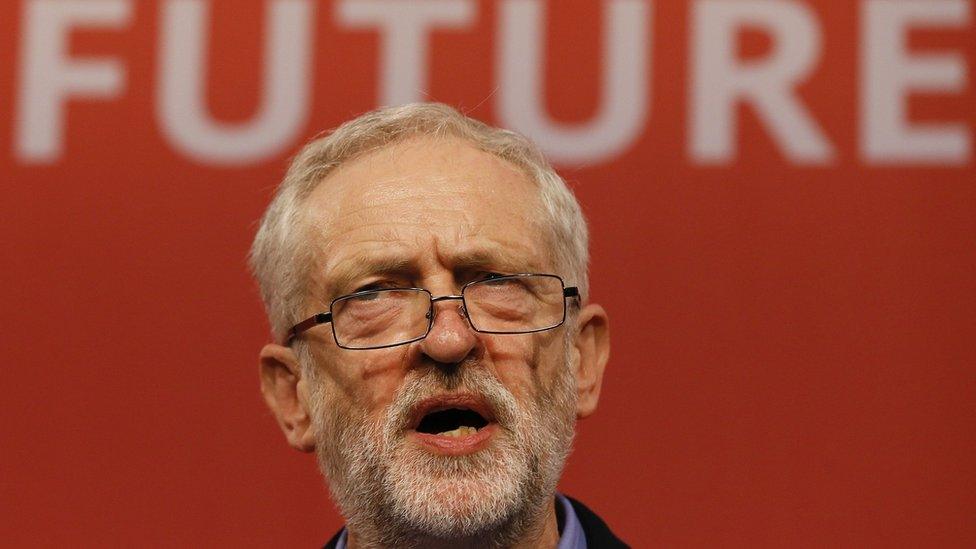
The party members watching the announcement at Crawley's Labour club were stunned by the size and speed of Jeremy Corbyn's victory.
"We're on our way!" chortled one man gleefully. "To oblivion," added his more cynical friend.
Mark Stephens, a long-time party member, has his concerns - but they are not shared by his wife, Michaela. She is 24 and became a supporter, and so Corbyn voter, in the past few weeks for just £3, external.
She feels at last there is a Labour leader who gives it straight, and has Labour values in his heart.
The fact of Jeremy Corbyn's victory is staggering. But so is the way he has enthused those who have previously stood on the sidelines, the way he brought in a swathe of new, young, radical supporters.
This election is many things.
It is part of a long, dark night of the soul for the Labour Party after elimination in Scotland, near wipeout in the south of England, the failure to discuss what went right and what went wrong during 13 years of government, and ducking the debate about the legacy of Tony Blair,, external Labour's most successful, most detested leader.
But above all, as befits a party going through an existential crisis, this is about authenticity, external.
A different politics
Jeremy Corbyn's victory cannot be understood with reference only to British politics.
All over the West some people, a minority of people to be sure, feel failed by those who have been in power for years, and their conventional, middle-of-the-road, firmly inside-the-box policies.
In Greece, we have seen the transformation of a bunch of hard-left groups into a party of government, Syriza, external.

Left-wing party Syriza won power in Greece, but Prime Minster Alexis Tsipras later resigned and is now campaigning again in a snap election
Podemos, external was for a while the most popular party in Spain, with anti-austerity at its core and the message that politics had to be different, external.
But this is not just about the left - hard-right nationalist parties are doing very well in many European countries, and the Tea Party, external in the United States was perhaps the earliest expression of a disgust with carrying on with politics as usual.
The right does not have it all its own way in the US. Bernie Sanders, like Corbyn, someone who has been around long enough to earn the title "veteran left-winger", is giving Hillary Clinton a run for her money, external for the Democratic nomination for presidential candidate.
His argument in part is that running shouldn't be all about money - that the political process shouldn't be just for billionaires. Anti-war, anti-inequality, his rallies have been attracting thousands.
Come to that Bill de Blasio, the mayor of that most capitalist of cities, New York, was elected on a forthright left-wing agenda promise to tackle inequality, external.
Politics is much less "sticky" - a significant minority are not adhering to a fixed world view but casting around for unconventional solutions.
But it is also a quest for sincerity, and authenticity - politicians who speak like the rest of us, not like a lawyer playing an archaic parlour game where you have to deploy a string of empty phrases to say as little as possible. People who speak their mind off the cuff without filtering spin doctor-designed phrases through focus groups and ad agencies. Politicians who go into politics to do something, not as another career choice.
Curse all round?
But beware the pitfalls of authenticity.
Some politicians dodge the question because a clear answer may put off some voters. But for others it is because they are not individuals, standing alone, but part of an organisation.
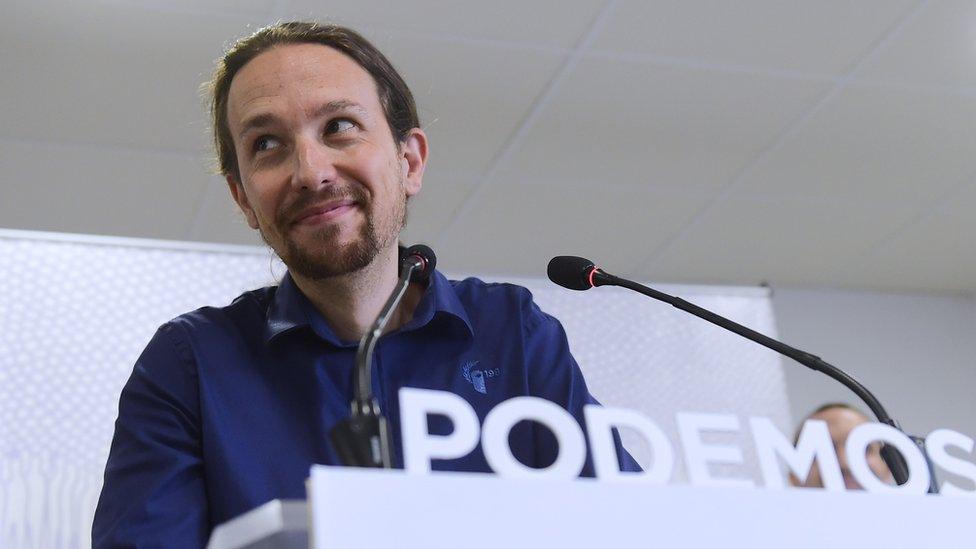
Spain's Podemos party has seen its popularity fall, largely as a result of its association with Syriza
The leader may prevaricate on BBC Radio 4's Today programme because the party has not approved a change of policy, the backbenchers have not been squared, key allies are still unpersuaded. When Mr Corbyn opens his mouth now, what comes out cannot be only his heartfelt beliefs but the agreed policy of his party.
Authenticity is a curse too for his internal opponents. If sincerity is the new watchword, how can they in all honesty serve someone they disagree with and avoid mealy-mouthed inauthenticity?
And if they do not serve, is skulking and sulking the new sincerity? Fighting like sincere cats in an authentic sack may not appeal to the voters.
Betrayal
Neither of the key examples from around the world offers much advice.
Syriza has made an awkward bargain with reality, abandoned most of the promises it was elected on, ditched a large part of its anti-austerity platform. It will face a test at the polls, external.
It may well survive as a centrist party with a leftish veneer, but its most ardent supporters have been left with a sick feeling.
Podemos has dipped in the polls, external after winning mayoral contests and making compromises. For the left in particular, the charge of "betrayal", external is always in the air.

Authentic parties in Europe?
Greece - Syriza swept to power in January on an anti-austerity ticket but failed to negotiate a better bailout deal for the country. Prime Minister Alexis Tsipras resigned and called an early election - but the party is neck and neck in the polls with the centre-right opposition, and rebel MPs have formed a breakaway party
Spain - Anti-austerity movement Podemos made dramatic gains in local and regional elections earlier this year but has been tarnished by its association with Syriza, and commentators say it has subtly begun to distance itself from the situation in Greece
UK - Long before Jeremy Corbyn entered the Labour leadership race, UKIP, led by the charismatic Nigel Farage, won support by saying it was prepared to confront issues other politicians were trying to dodge, focusing on Britain leaving the EU and immigration. In 2014, the party won the European elections but in the 2015 general election won only one seat and Mr Farage failed to get elected
France - Front National, founded by Jean-Marie Le Pen in 1972, is now led by his daughter Marine, who has tried to steer the party away from its racist and anti-Semitic past. In 2014, it was the leading French party in the European elections
Finland - The eurosceptic Finns Party, previously known as the True Finns, came second in the 2015 parliamentary elections and is now part of a coalition government with the Centre Party and the National Coalition Party

The Tea Party re-energised the Republican Party, helped it to victory in midterm elections, but pushed it so far from the mainstream that some think the White House will remain out of sight.
None of these is a palatable option.

Republican presidential candidate Rand Paul is backed by the Tea Party
'Principles without power'
But authenticity is a particular challenge for the social democratic left in general and the Labour Party in particular.
One councillor in Crawley, Brenda Smith, external, told me: "It's a nightmare. I believe the man's principles are correct, it is what all of us as socialists carry in our heart, but it is whether or not you can deliver that. I don't think he has the moral high ground on that - principles are no good without power."
The idea that many Labour supporters know what they want but cannot possibly say it out loud is deeply worrying. There are many, for want of a better word, Blairites who agree with "the project" lock, stock and two smoking barrels.
There are others who supported Blair who think the only way to smuggle in a bit of higher taxation and higher spending by the state on health and education is to wrap these policies in right-wing rhetoric about crime and immigration, swaddled tightly with a blanket of tough national security and aggressive military action, and with a bit of luck the voters and the tabloids will not notice what you are carrying as you hurry past them.
In this sense, "triangulation" is about as far from authenticity as you can get.
It is going to be a difficult and fractious few months ahead for Labour. You could see it as a part of an electoral cycle that dictates that a party stays out of power for a while after years in office. You might, with glee or fear, predict a civil war that leaves both sides terminally wounded.
But it is also a moment when one of the two great parties of British politics will have to ask why it exists and whether it is even possible to be in touch with both its principles and the majority of voters - whether authenticity is an option.
- Published13 September 2015
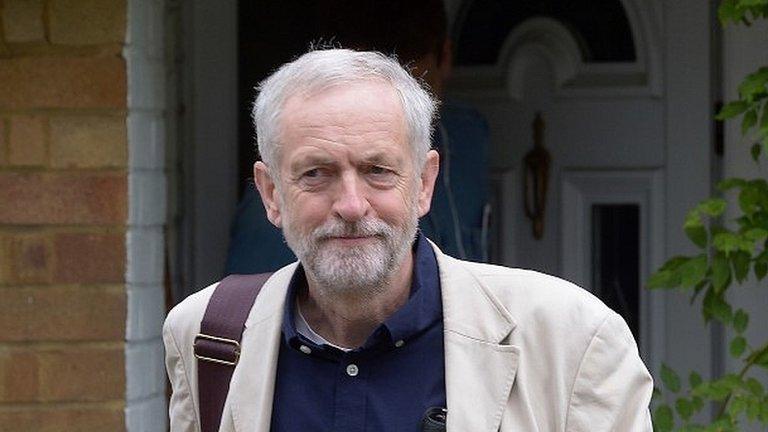
- Published13 September 2015
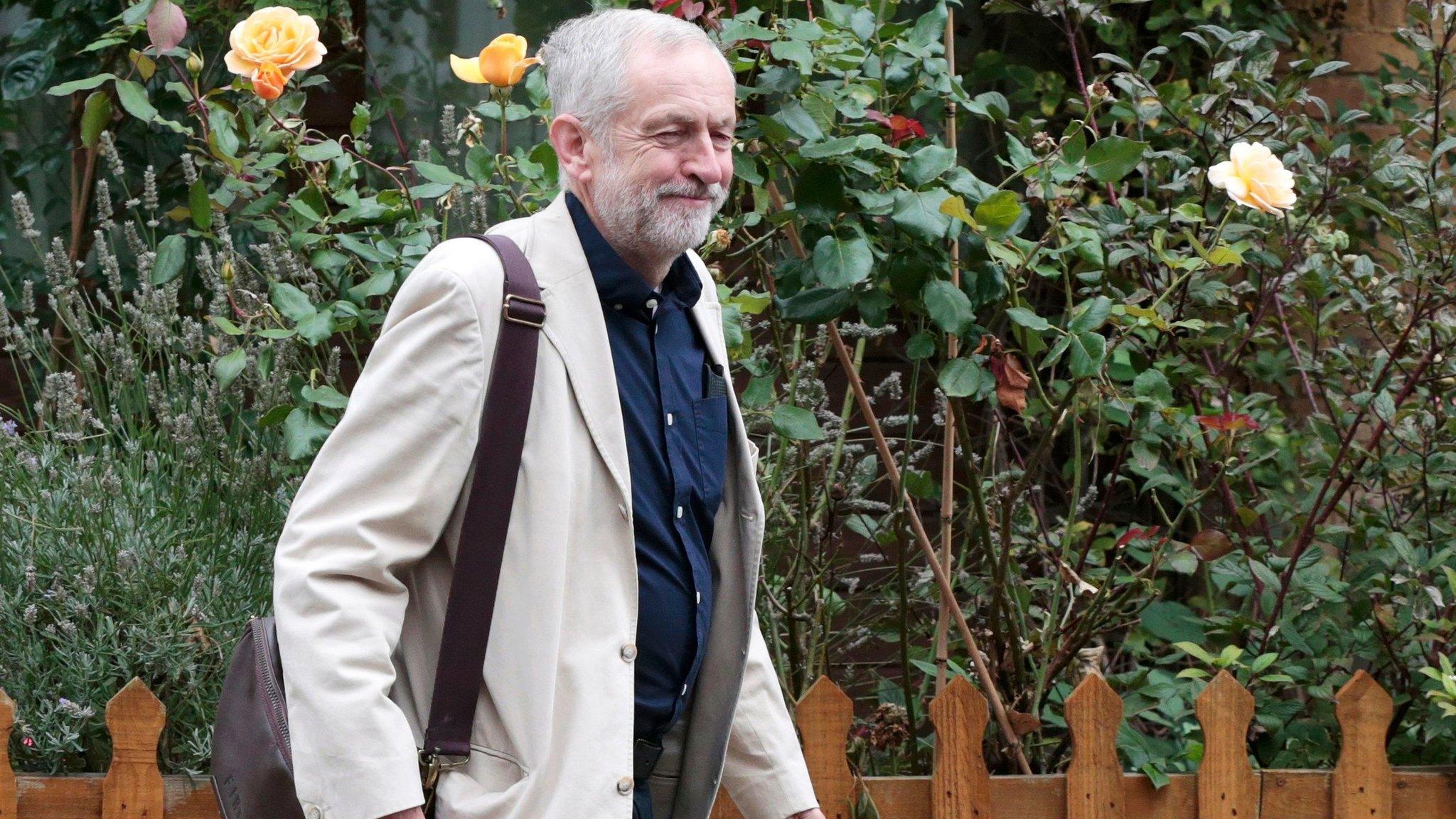
- Published12 September 2015

- Published12 September 2015
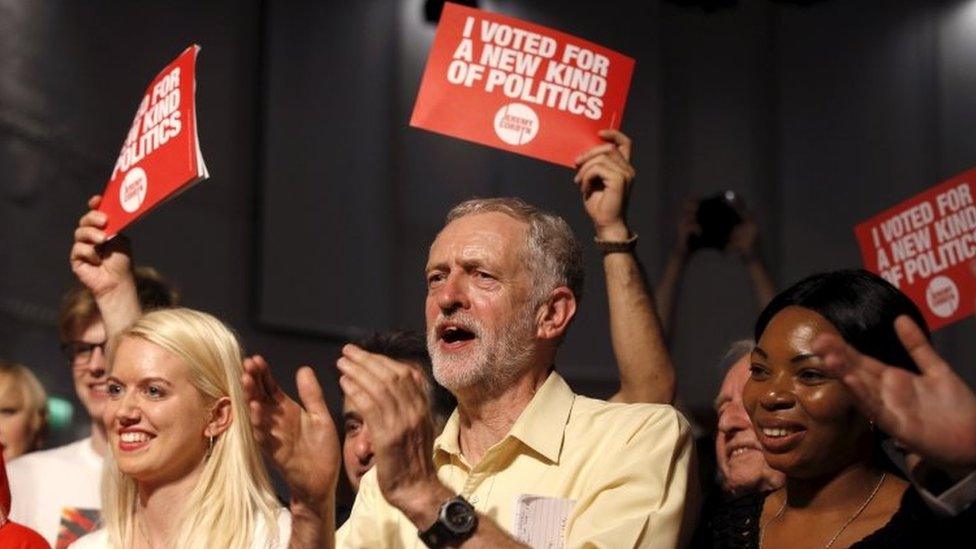
- Published13 September 2015
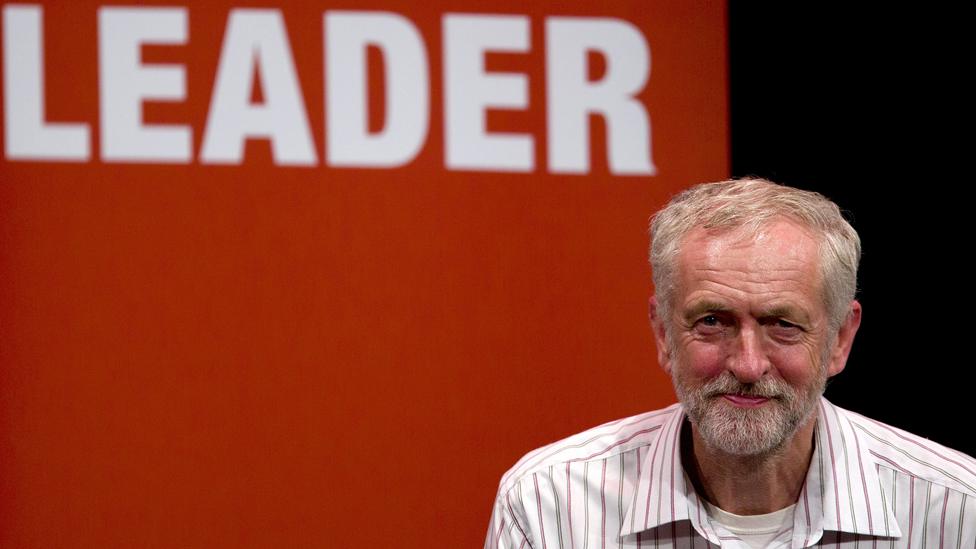
- Published12 September 2015
